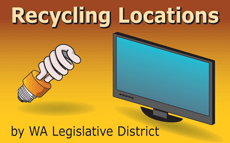West Coast Refuse and Recycling Coalition report on packaging EPR was misleading
In the April 9, 2019 issue of Resource Recycling, David Lefebvre of Recycle BC responded to the April 2 article, Report says Canadian packaging EPR is failing to deliver:
"Claims that the Recycle BC program lacks transparency are unfounded. All of the program’s published financial and recycling data is subject to third-party audit and assurance as required by the provincial government. Further, nearly two-thirds of the report’s citations reference public information provided by Recycle BC and its partner Canadian Stewardship Services Alliance, including reports on stakeholder consultations on the Recycle BC program plan, providing further evidence of the program’s transparency to stakeholders.
The first five years of Recycle BC’s operation have demonstrated that EPR is an effective and efficient approach to the management of packaging and paper products. The program is committed to continued improvement that will provide value and results for all its stakeholders."
CBC also spoke with Lefebvre in an April 9 article and video, Why B.C. is better at recycling than most other places, in which he enumerated three ways:
1. Producers pay:
Under B.C.'s system, called Recycle B.C., business owners pay a fee for packaging they create that will eventually end up in someone's blue bin. "It's 100 per cent funded and operated by the companies that are putting plastic and paper product packaging into the marketplace," Lefebvre said. "These companies have come together in order to manage recycling across the province."
2. Low contamination:
"We have an average contamination rate of about 6%. It's really good compared to other provinces and a lot of that is due to the education that's been happening both at the municipal level and across the province." [Note that Washington state contamination rates, hard to calculate, are between 10% and 20%.]
3. Product quality:
B.C.'s low contamination rate means the province's raw recycled materials are usually high quality, making them much easier to sell in an extremely competitive global market. "We're still able to find markets, but there are a lot of jurisdictions that are definitely struggling at this time," Lefebvre said. "Obviously, our preference would be local, so if you look at plastic, all of the plastic that's collected here in the province ends up here in B.C."
